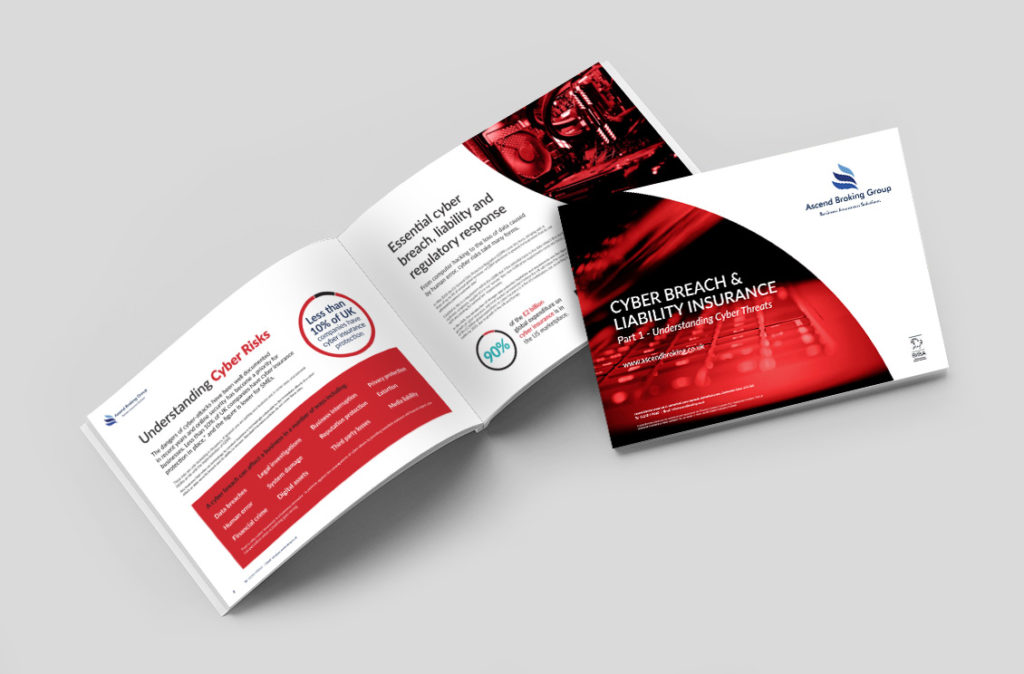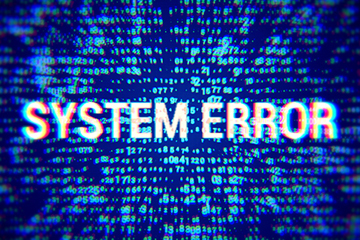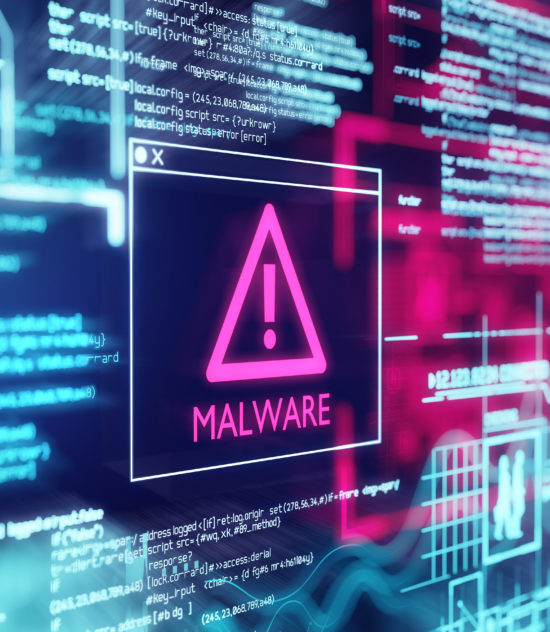Cyber & Data Insurance
- Home
- Private: Insurance
- Cyber & Data Insurance
What is Cyber Insurance?
Cyber and data risks insurance, also known as cyber liability insurance, is designed to support and protect your organisation if it experiences a data breach or malicious cyber hack that affects your systems or ability to operate.
You should consider cyber insurance if you:
- Store personal information
- Keep email addresses
- Use a computer
- Run business software
- Take card payments
- Make electronic payments
- Have a website
- Use cloud storage
“Cyber crime is the greatest threat to every company in the world.”
Ginni Rometty, IBM Chairman, President and CEO
Ransomware, malware, trojans, electronic funds fraud, telephone hacking…the list is endless, and cyber attacks are coming for businesses thick and fast. The demand for a consultative solution to protect your business against complex threats has never been greater.
Call for a quote
Make an enquiry

- 75% of cyber attacks start with an email
- 43% of cyber attacks target small businesses
- Every 39 seconds there is a cyber attack
- Human error accounts for 95% of all data breaches
67% of cyber incidents are due to employee error – safeguard your business against cyber attacks today!


Download Part 1 of our Cyber Breach & Liability Insurance white paper
What are you covered for?
Our Cyber Insurance product has been designed to provide critical incident support and protect you against the financial and reputational costs of a data incident.

Data Breaches

Legal Liability

Reputation Protection

Business Interruption

Extortion

Human Error

System Error

Privacy Protection

Financial Crime & Fraud
Platinum

- 24/7 Specialist Response line
- Breach investigation costs
- Costs incurred to notify data subjects
- Hacker damage
- Business interruption
- Loss of profit
- Supply chain protection
- Data and equipment restoration
- Legal costs and damages Social Media liability
- Credit monitoring costs
- PR & reputational recovery costs
- Theft or transfer of your money
- Privacy protection
- Cyber extortion
- Social media liability
- Credit monitoring costs
- PR & reputational recovery costs
- Theft or transfer of your money
- Telephone hacking
- Theft of your digital assets or tangible property
- System failure due to employee error
- Telephone hacking
- Theft of your digital assets or tangible property
- System failure due to employee error
- Risk management service
Gold

- 24/7 Specialist Response line
- Breach investigation costs
- Costs incurred to notify data subjects
- Hacker damage
- Data and equipment restoration
- Legal costs and damages
- Privacy protection
- Business interruption
- Loss of profit
- Supply chain protection
- Cyber extortion
- Social media liability
- Credit monitoring costs
- PR & reputational recovery costs
Silver

- 24/7 Specialist Response line
- Breach investigation costs
- Costs incurred to notify data subjects
- Hacker damage
- Business interruption
- Loss of profit
- Supply chain protection
- Data and equipment restoration
- Legal costs and damages
What if...?
If your business handles customer data or processes payment transactions, you’re at risk of a cyber attack. Expenses associated with a data breach can quickly add up for a small business. Whether you have 300 customer records or 3000, your bottom line could be impacted by legal defence costs, settlements, lost business, notification costs and more.
We provide access to 24/7 specialists that can help you through the breach, providing technical, forensic and legal assistance.
If your primary business operations use computer systems, a disaster that cripples your ability to transmit data could cause you, or a third party a reduction in turnover. Denial of Service attacks by hackers have been on the rise, with such attacks blocking access to a website by ether rerouting traffic to a different site or overloading an organisation’s server. If this happens to you, our cyber policy will get you back to pre-loss revenue levels swiftly.
A natural disaster, malicious activity or fire could all cause physical damages that could result in data or code loss. While the physical damages to your system hardware would be covered under your existing business liability policy, data or code loss would not be, but that is where a cyber policy is indispensable.
Hackers can hijack websites, networks and stored data, denying access to you or your customers, then demand money to restore your systems to working order. This can cause a temporary loss of revenue, plus generate costs associated with paying the hacker’s demands, or rebuilding if damage is done. A cyber policy can cover this.
If an e-mail sent from your server has a virus that crashes the system of a customer, or the software your company distributes fails, resulting in a loss for a third party, you could be held liable for the damages. Again, a cyber policy can cover this.
Not all cyber policies cover this automatically, so be aware
Legal defence costs are provided in a cyber policy, but not fines, as they are deemed criminal under the new legislation.
Frequently Asked Questions
Data breaches are costly.
Cyber incidents now happen frequently to all businesses and are on the increase. The coverage we provide works to maximise your data protection and business security.
Fact: almost 9 in 10 SMEs say their cyber insurance covered the cyber security incidents they suffered in 2018.
What businesses should buy data insurance?
In truth, no organisation is immune from the potentially devastating financial impacts of a cyber loss. Any business that relies upon technology to acquire or engage with customers, processes or stores customer data could seriously suffer as a result of data loss or theft.
Cyber insurance helps protect your business and customers digital data.
From 25th May 2018, the EU General Data Protection Regulations came into force, dramatically changing the compliance requirements on all businesses in the UK. In summary, the new rules:
- Introduce a mandatory notification period following a data breach of 72 hours.
- Greatly increase the potential penalties for non-compliance to EUR 20 million, or up to 4% of global turnover, whichever is greater.
- Clearly define the rights of individuals over the personal data held on them by all organisations.
PII stands for Personal Identifiable Information and refers to a type of data that identifies the unique identity of an individual. It provides the most basic forms of personal information and can include an individual’s name, gender, address, telephone and email address. The amount of PII records stored on an organisation’s IT network can impact their premium calculation: the higher the number of records, the greater the risk due to regulatory requirements, such as mandatory notification in the event of a cyber breach.
- Systems shut down.
- Loss of business data via hardware. ie server, laptop or device.
- Cyber attack or network breach ceasing operations.
- Malicious misuse of your business data.
- GDPR costs incurred to the business
- Breach notifications
- Breach mitigation
- Data restoration
- Business income
- Extra expenses protection
- Theft of monies or securities digitally
- Third-party coverage for a privacy breach or data event
- Coverage for regulatory fines
- Legal and defence expenses
- Coverage for PCI DSS fines
- Legal cost exposures
- The cost of notifying, complying and defending any data breach within the new GDP regulations
- Management of any data liability
- System failures
- Online shut-down
- Hacking or stealing of your client data
- Complete shut down of your systems
- A breach to an associated supplier
Do you think that data breaches and cyber attacks only happen to the largest of companies? Think again! While large companies make the headlines, the reality is that 1 in 3 documented data breaches occur in businesses with less than 100 employees. What’s more, 60% of small businesses are forced to close their doors within 6 months of a cyber attack.
If your business handles customer data or processes payment transactions, you’re at risk of a cyber attack. Expenses associated with a data breach can quickly add up for a small business, when the average cost of each compromised record being £200. Whether you have 300 customer records or 3000, your bottom line could be impacted by legal defence costs, settlements, lost business, notification costs and more.
Cyber Business Interruption cover means that in the event of a cyber-attack or, for example a ransomware attack that forces you to cease or restrict normal business operations, any income lost as a result of such an interruption would be reimbursed through your policy. This would occur after 12 hours of network downtime.
Traditional insurance policies such as general liability, property and professional indemnity will usually explicitly exclude damage to digital assets or losses arising as a result of a cyber attack. Without a standalone cyber policy, businesses may face a hard legal battle to be indemnified.
See our latest articles












